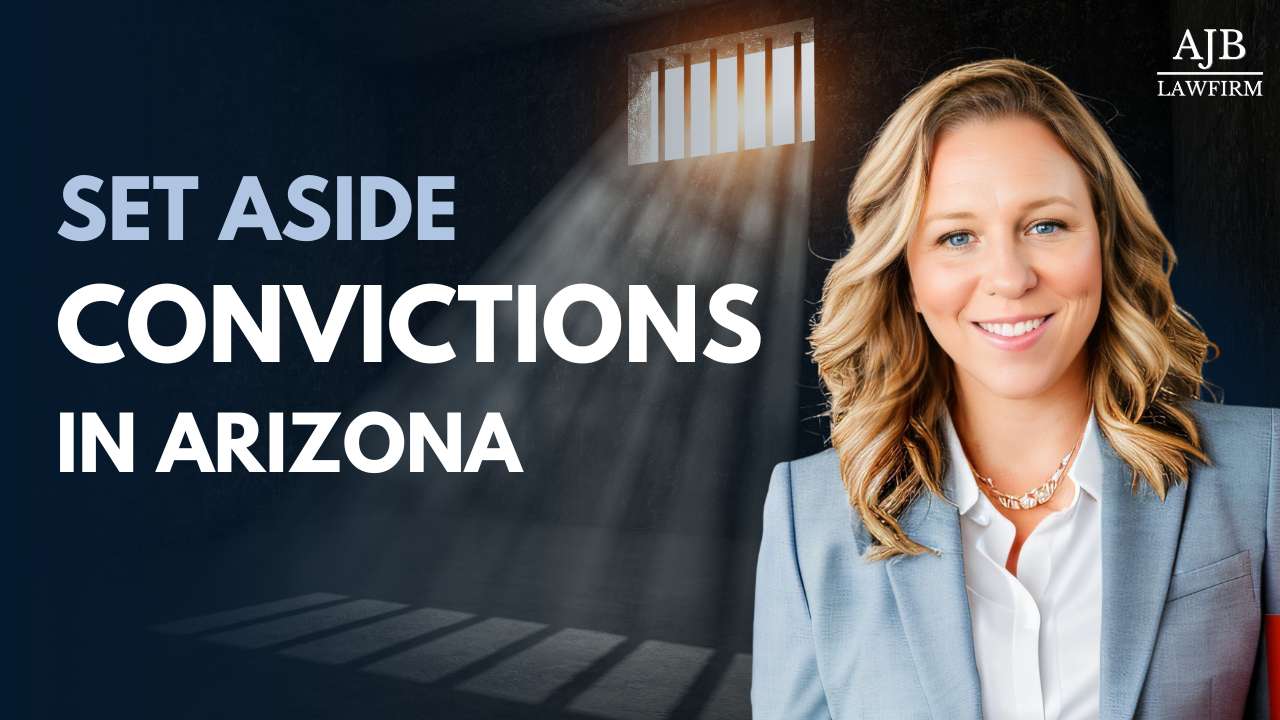How to Get Your Conviction Set Aside in Arizona
If you've been convicted of a crime in Arizona, you might be wondering how to move forward and rebuild your life. One option available to you is having your conviction set aside. This can help you overcome some of the barriers that come with a criminal record, such as difficulties in finding employment or housing. In this post, we'll walk you through the process of setting aside a conviction in Arizona, including eligibility requirements, the application process, and the potential benefits and limitations.
Understanding the Basics: What Does "Setting Aside" Mean?
When a conviction is set aside in Arizona, it means that the court has dismissed the judgment of guilt and released you from all penalties and disabilities resulting from the conviction. This does not erase your record but signifies that you have met the requirements set by the court and have been deemed rehabilitated.
Who Is Eligible to Apply?
Not everyone is eligible to have their conviction set aside. Here's a breakdown of the key eligibility criteria:
Completion of Sentence: You must have fulfilled all conditions of your probation or sentence, and the court must have discharged you.
Type of Offense: Certain serious offenses are not eligible to be set aside, including:
Dangerous offenses
Offenses requiring registration as a sex offender
Offenses with a finding of sexual motivation
Felonies involving victims under 15 years of age
Time Elapsed: For some offenses, a specific amount of time must have passed since you completed your sentence.
The Application Process
Applying to have your conviction set aside involves several steps:
File an Application: You, your attorney, or your probation officer can file an application with the court that sentenced you. There is no filing fee for this application.
Court Consideration: The court will consider various factors, including:
The nature and circumstances of the offense
Your compliance with probation or sentence conditions
Any prior or subsequent convictions
Input from the victim and the status of restitution
The time elapsed since your sentence was completed
Your age at the time of conviction
Any other relevant factors
Objections: The state or the victim has 30 days to object to your application. If an objection is filed, the court may hold a hearing.
Court Decision: If the court grants your application, it will set aside the judgment of guilt and release you from all penalties and disabilities resulting from the conviction.
Benefits of Setting Aside a Conviction
Having your conviction set aside offers several significant benefits:
Employment Opportunities: Many employers view set-aside convictions more favorably than active convictions, improving your chances of getting hired.
Housing: Landlords may also be more willing to rent to individuals whose convictions have been set aside.
Occupational Licenses: A set-aside conviction can remove barriers to obtaining certain occupational licenses.
Limitations and Considerations
While having a conviction set aside can be very beneficial, there are some limitations:
Criminal Record: The conviction remains on your record, but it will be annotated to show that it has been set aside.
Use in Future Legal Proceedings: The set-aside conviction can still be used in future legal proceedings, such as in determining sentencing for new offenses.
Firearm Possession: If your conviction is set aside, your right to possess a firearm is restored unless your conviction was for a serious offense.
Certificate of Second Chance
In some cases, the court may issue a Certificate of Second Chance when it sets aside your conviction. This certificate provides additional benefits:
Occupational Licenses: It releases you from barriers to obtaining an occupational license.
Employment and Housing Protections: It offers protections to employers and housing providers from certain liabilities.
Rehabilitation Signal: It serves as an official recognition of your rehabilitation, although it is not a guarantee of employment or housing.
Conclusion
Setting aside a conviction in Arizona can be a crucial step in rebuilding your life after a criminal conviction. By understanding the eligibility requirements, the application process, and the potential benefits and limitations, you can make informed decisions about your future. If you believe you may be eligible, consider reaching out to a qualified attorney who can help guide you through the process and increase your chances of success.
If you need assistance with setting aside a conviction, please feel free to contact our office. We are here to help you navigate this complex process and work towards a brighter future.
